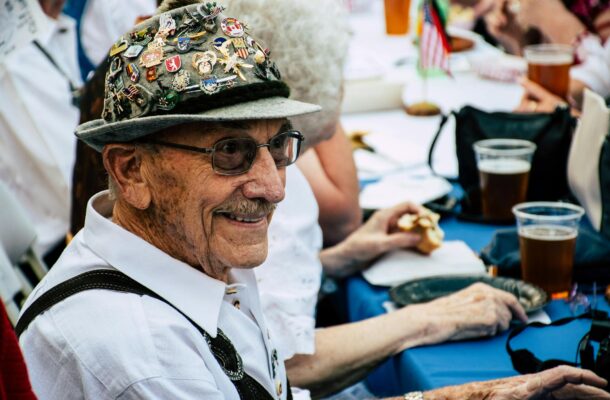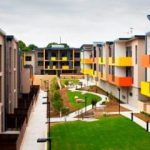Flexing our social muscles

I caught up with a friend recently who is a couple of years shy of her intended ‘retirement age’. I’ve been running a transition program for people at this stage in life for the last eight years, so was curious to find out more about how she’s feeling. In particular, I wanted to know how she was thinking about the social aspects of life ‘post work’.
One story she shared stood out. It was about a friend, a ‘retired teacher’, who found herself lacking confidence at the thought of meeting new people in this new life phase.
Despite a long and successful career that relied on well-honed communication skills, she faced her next phase of life with trepidation and a low opinion of her own social abilities.
Of course, social uncertainty is not unique to this age group or this life transition, but two things change dramatically when we leave the workforce: our roles and our context. For the ‘retired’ teacher, in her working life, she had a clear role to fulfil in her interactions with students, colleagues and parents, and a clear context in which to fulfil that role: a school. In working lives we all do, and those two things can subtly give us social confidence without us being consciously aware of it. Take them away, and we can begin to flounder.
The gold standard for a post-work life is for each individual to find and fulfil purposeful roles in a meaningful context to them. But for many that may feel like a massive step from where they currently are, particularly in a society where ingrained ageism is still rife. So I suggest an easier place to start is with small and achievable social experiments: tiny steps to explore new contexts and open up possibilities for new roles.
In Mindset for Life we are huge advocates for starting small and seeing the post-work journey as a time to experiment and explore possibilities: in our wellbeing, our mindset, our habits and in the stories we tell about ourselves. So what do small steps to find meaningful roles and contexts look like? I think it starts with building our ‘social muscle’ to be curious about others around us, to have surprising encounters and to create opportunities through the people we meet.
The psychologist and social neuroscientist John Caccioppo dedicated much of his career to the study of loneliness and it was his writing that introduced me to the concept of a ‘social muscle’.
It is well-known that physical muscles need regular exposure to a degree of stress through exercise, with just enough recovery time, to stay strong.
Apply this same rhythm to our social activity and skills, and we can see that a healthy workplace gives us that regular exposure to a degree of ‘social stress’. Interacting regularly with people we do not know well, or with whom we do not agree, uncomfortable as it may be, is actually keeping us socially ‘fit’.
A key focus in Cacioppo’s work, and in what we explore in Mindset for Life, is how we create small social experiments and challenges in the rhythm of life – things like smiling at someone when you go out for a walk, or saying hello to someone in a café or sending a quick message to someone you haven’t seen for a while. I think these experiments serve a few purposes:
1 – They help to reduce the fear factor of going into new settings. It’s just an experiment, so go into it to learn what works for you socially, rather than to ‘make a new friend’ or to get a reply. So if the old friend doesn’t reply to your message, that’s OK – it’s all data in your social experiment.
2 – They give your social muscle a workout. By pushing yourself a small step out of your comfort zone, and by feeling just a little bit socially awkward, you make it easier to do it again when it really matters. And it’s just a workout, so again, it doesn’t matter if the person doesn’t reciprocate.
3 – They might, occasionally, lead to a new (or a renewed) social connection. The more we take these tiny social steps, the more confident we will feel in our own social skills and the greater the odds that one of them will lead to a more meaningful connection.
4 – They can open up new contexts. Be it a local café, a library, or the dog park, finding some contexts in which you feel comfortable can increase the chances of bumping into people who may have shared interests and creates some familiarity when you see the same people on numerous occasions.
Throughout my time supporting people at this stage of life, I hear repeatedly that almost all the resources that people can find, until they stumble upon our program, are for the financial aspects of leaving the workforce. Recent research backs this up, indicating that people tend to put more effort into financial planning and approach retirement with less focus on the social domain.
And yet research shows that the two strongest indicators of longevity in developed economies are both social in nature.
It’s time that we start to take seriously the social planning required for later life and prioritise keeping our social muscles fit and active at all ages as an investment in our own healthy longevity.
The Mindset for Life program is running online & free of charge throughout 2024. Sign up here or contact mindset@thinkhuman.com.au to find out more about bringing the program to your workplace or community.
Melanie Lambert is the Founder of Think Human, an Adelaide-based consultancy combining strategy, dialogue and design to create more human experiences. Mel has over 20 years experience in the not for profit and public sectors in Britain and Australia.













